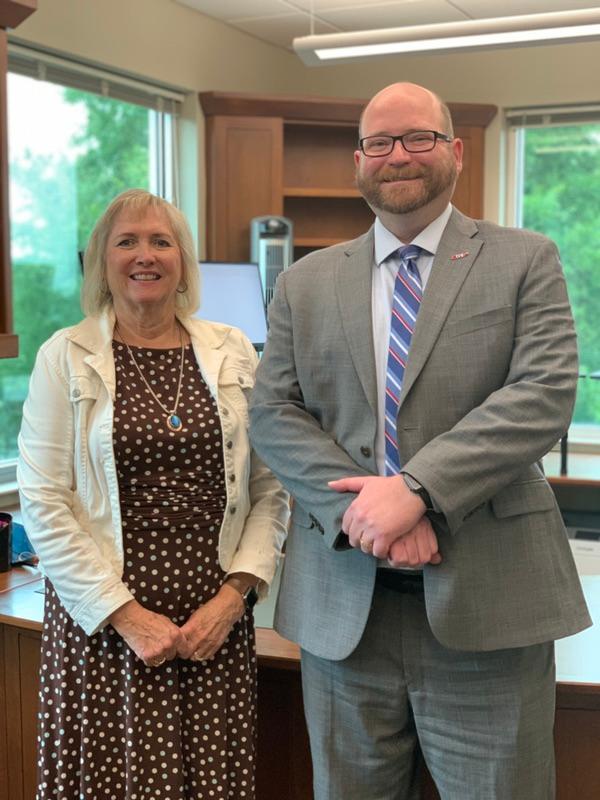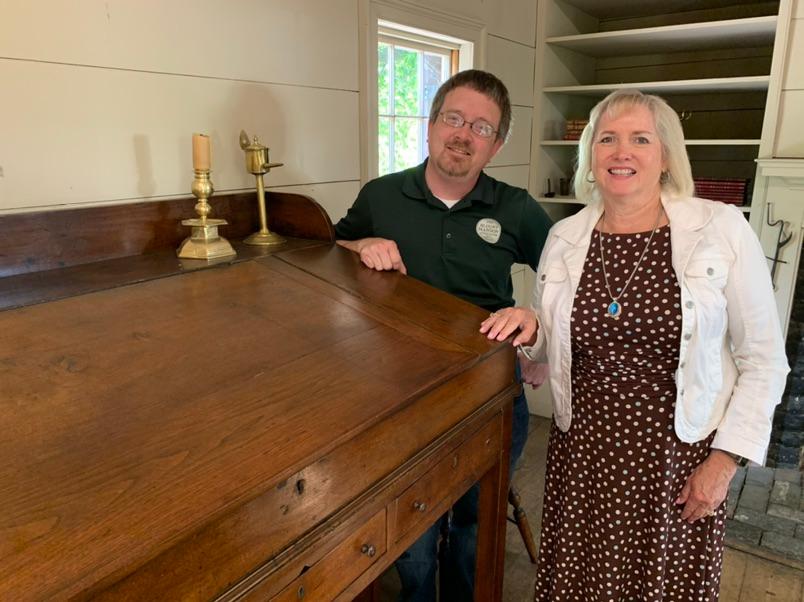111th General Assembly adjourns sine die
State Budget focuses on economic recovery and essential state services, while keeping promises for tax relief to Tennessee seniors
The 111th General Assembly adjourned sine die to become a part of Tennessee history on Friday, June 19th, with several important bills approved during the final week of legislative action, including the state budget.
The Senate and House of Representatives worked together to find common ground on several key points before passage of the state budget. Although the bare bones spending plan focused on economic recovery and providing essential state government services, the measure also keeps promises to Tennessee seniors by keeping the Hall Income tax phase-out on track for elimination by January 1, 2022.
The majority of Tennesseans paying the Hall tax are retirees who depend on investment savings as their primary source of income. In 2016, the General Assembly passed tax relief legislation to cut the tax by a minimum of one percent each year until Tennessee is income tax free.
The Senate and House also agreed to add $15 million to extend the state’s $10 million sales tax holiday to two weekends to help stimulate sales for struggling businesses and give consumers relief. The state has held annual sales tax holidays for the past 15 years. Current law applies the holiday sales tax exemption to clothing and school supplies for purchases of up to $100, while personal computers and tablets are capped at $1,500.
The new budget provides that beginning Friday, July 31, 2020 through Sunday, August 2, 2020, the sales tax holiday exemption limits will double to $200 for clothing and $3,000 for computers, tablets, and certain other electronics. The measure also provides a sales tax holiday for the retail sale of food and drink by restaurants and limited service restaurants for the weekend of Friday, August 7, 2020 through Sunday, August 9, 2020. Restaurant and clothing industries have been especially hard hit by the COVID-19 response.
The 2020 session began with introduction of a budget by Governor Lee that laid out a bold vision for Tennessee. It focused on significant improvements in mental health, early childhood literacy and education, rural development, sentencing reform, and continuing the state’s robust job growth and prosperity which was unprecedented in state history. However, state lawmakers had to regroup in March due to the economic effects of the COVID-19 pandemic on state revenues.
The first case of the novel coronavirus occurred on March 5, only two days after the state was ravaged by tornadoes. Passage of an emergency budget followed on March 19 to help tornado victims, aid in the fight against the virus, and ensure critical state services were continued.
When lawmakers reconvened in June, state finance officials estimated a budget gap of $500 million to close the current fiscal year due to weak revenues. This is in addition to an estimated $1 billion shortfall for the 2020-2021 fiscal year which begins July 1.
The new spending plan closes the current fiscal year deficit, utilizing agency savings, unbudgeted non-tax revenues, certain reserve funds and continuing the freeze on hiring. For the 2020-2021 fiscal year, the budget makes strategic reductions. Among other measures, it allows budget officials to review target reductions identified by departments and agencies of state government as they develop a thoughtful plan to deliver greater efficiencies.
The legislation fully funds the Basic Education Program (BEP) for K-12 schools and the pension plan for state employees and teachers. It also services Tennessee’s debt to ensure the state is financially sound.
Under the plan, Tennessee will still remain as one of the least indebted states in the nation per capita. The state also ranks third for best-funded pension plans and is one of only five states without road debt, enhancing the Volunteer State’s AAA-rated bond status.
Conservative fiscal management has placed Tennessee in better shape than the vast majority of other states in the nation to withstand the economic downturn.

As we celebrate our nation’s freedom, we honor the courageous men and women dedicated to preserving it.
May we celebrate that precious freedom for which our forebearers fought so bravely.
I hope your Independence Day is filled with friends, family (of course properly social distanced) and a time to remember and celebrate what makes our country so great.
Becky
The Essence of America that what really unites us –
Is not ethnicity, or nationality or religion –
It is an idea – and what an idea it is:
That you can come from humble circumstances and do great things.
That it doesn’t matter where you came from but where you are going


Laws Effective July 1, 2020
July 1st marks the beginning of a new 2020-2021 fiscal year in Tennessee as the state’s budget passed by the General Assembly becomes effective. Many other new laws are also set for enactment. I will be featuring the key legislation that was passed this year in an upcoming series in my newsletter. Here is a sampling of some of the bills.
GIVE ACT / Vocational Education — The General Assembly established the Governor’s Investment in Vocational Education (GIVE) Act to develop work-based learning and apprenticeship opportunities through regional partnerships. The purpose of the new law is to increase the number of young adults in Tennessee earning an industry certification and entering a career within one year of high school graduation. It provides funding for high school juniors and seniors to utilize four fully-funded dual enrollment credits for high-skill, high-demand, career-focused programs from community colleges and Tennessee Colleges of Applied Technology (TCAT).
Under the new statute, a student’s acceptance of a GIVE Dual Enrollment grant would not take away from his or her eligibility for the HOPE Scholarship or TN Promise.
Since 2005, Tennessee has provided lottery funds for higher education coursework while students are still in high school. The current dual enrollment program provides full funding for two college courses and a portion of a third. The GIVE Dual Enrollment Grant will provide additional money to fully fund the third and fourth courses for students dual-enrolled in a TCAT or Community College teaching a high-skill, high-demand trade, as determined by the Tennessee Student Assistance Corporation (TSAC) Board of Directors.
In 2018, over 28,000 students received a total of $21.5 million in lottery funding for dual enrollment. Senate Bill 805 / Public Chapter 203
Access to dental care expanded – A bill that I sponsored to help nonprofit dental clinics provide free care to more Tennesseans in need passed. It expands the maximum number of dental hygienists a dentist can oversee at a nonprofit provider of free mobile clinics from three to ten. This will allow organizations, like Mission of Mercy and Remote Area Medical Clinics which provide free dental services from volunteer dentists and hygienists, to take care of as many people as possible. Across the state these clinics have had to turn away volunteer dental hygienists because they do not have enough dentists to oversee them. Senate Bill 2017
New laws strengthen penalties against child sex offenders – Legislation was passed this year strengthening Tennessee’s statutes against the “worst of the worst” child sex offenders. Currently, sex offenders can be charged with aggravated rape of a child if their victim is zero to three years old. Beginning July 1, the new law raises that age range to zero to eight years old.
Under legislation passed by the General Assembly in 2019, aggravated rape of a child is a Class A felony offense which is automatically punishable by life imprisonment without the possibility of parole. Increasing the age range from zero to three to zero to eight, will help to ensure more of these offenders are taken off the streets. Senate Bill 1800 / Public Chapter 588
Legislation bans convicted animal abusers from owning pets in certain cases — This new law will ban some convicted animal abusers from ever owning any pets again. The new law prohibits individuals convicted of some of the worst offenses against animals from owning companion animals for at least two years from the date of conviction and may impose a lifetime prohibition. Upon a subsequent offense, the court shall prohibit the individual from having custody of any companion animal for the person’s lifetime. The measure builds on a 2015 law that created the Tennessee Animal Abuse Registry , the first ever animal abuse registry in the nation. Senate Bill 1747 / Public Chapter 570
Legislation clarifies organized crime retail law – A new law sponsored by Senator Richard Briggs clarifies Tennessee’s organized retail crime statute. The legislation provides that the illegal purchase of merchandise or stored value cards may be made by physical or electronic means under Tennessee statutes to further curtail the crime. The measure seeks to cut off the flow of funds used in the purchase of illegal drugs through retail theft.
The offense of organized retail crime includes an individual that acts in concert with one or more individuals to commit theft of any merchandise with a value greater than $1,000 aggregated over a 90 day period with the intent to fraudulently return the material to a retail merchant. Expert testimony taken in the General Assembly previously revealed that Tennessee was losing over $14 million in sales tax dollars and retailers were losing over $200 million each year related to return fraud, with almost all being related to the illicit drug trade. Senate Bill 1943 / Public Chapter 620
Tennessee to join Interstate Driver License Compact — Tennessee is joining 42 other states in an interstate Driver License Compact under a new law that I sponsored. The compact is used by states to exchange information regarding driver license revocations or suspensions due to major traffic violations by non-residents. The offenses are then forwarded to the home state where the person is licensed. The compact’s theme is “one driver, one license, one record.”
The measure requires the state to report convictions to an offender’s home state when it involves manslaughter, negligent homicide, driving under the influence of drugs or alcohol, and failure to stop and render aid when a motor vehicle accident results in the death or serious injury of another. It also applies to offenders with felony convictions when a motor vehicle is used in the commission of a crime. The licensing authority in the compact’s party state may not issue a license to an applicant if the individual has been suspended or revoked in a compact party state and the period of termination has not expired. After one year, the applicant can reapply for a driver’s license, with the compact state’s licensing authority. Senate Bill 1643 / Public Chapter 610
State’s “slow poke” law is extended under new law – Legislation was approved this year extending the state’s “slow poke” law to divided highways with two or more lanes in each direction. Current law requires cars to stay out of the left lane of interstate highways with at least three lanes, except in the case of passing other vehicles or while the road is under construction or repair, with violators facing a $50 fine. Many traffic safety experts believe that driving too slow in the passing lane is at least as dangerous as diving too fast, resulting in a number of highway accidents. Senate Bill 1497 / Public Chapter 598
If you would like to view a full list of the laws that will go into effect on July 1st, you can click here: Laws Effective 7/1/2020


ladies at the Habitat Women’s Build

Austin-East, Bearden, Gibbs and Farragut and help congratulate these students.
 |
 |
 |
